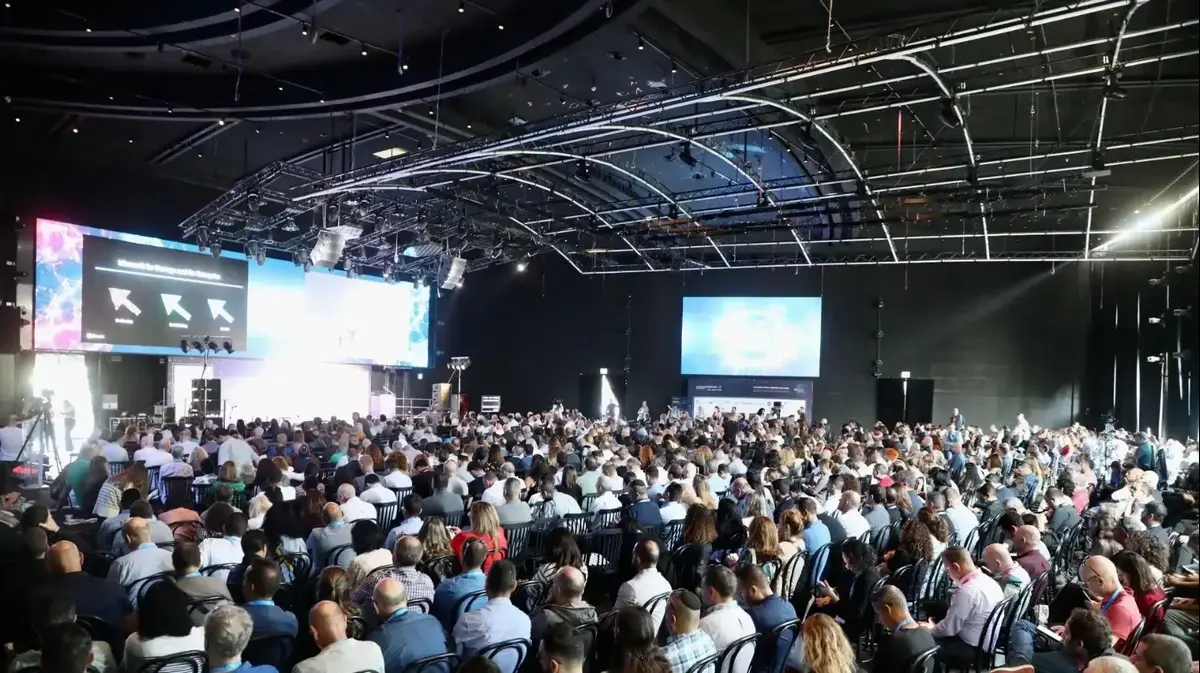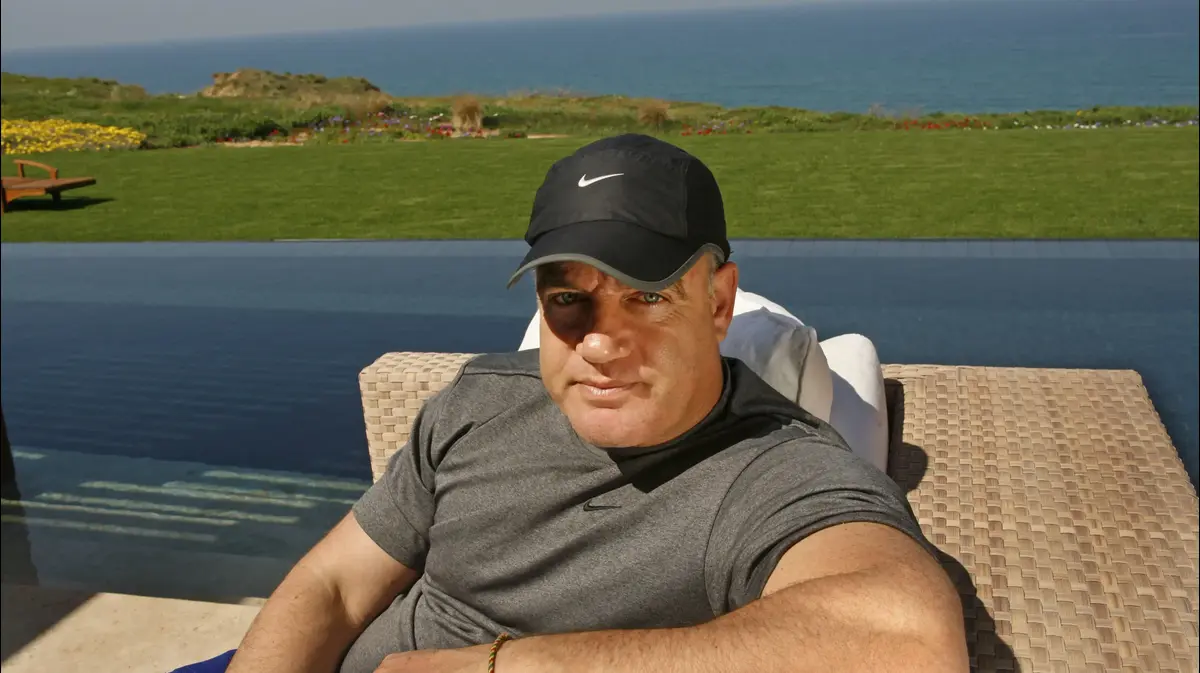And sometimes the celebration ends?
Discussion of high-tech CEOs
Confident in their companies, believe they will survive the crisis, but do not ignore the fact that money has become more expensive and difficult to raise as last year.
CEOs of leading high-tech companies, in an open conversation about the upheaval experienced by the industry
Liat Ron
02/06/2022
Thursday, 02 June 2022, 14:44 Updated: Sunday, 05 June 2022, 07:48
Share on Facebook
Share on WhatsApp
Share on Twitter
Share on Email
Share on general
Comments
Comments
The Israeli high-tech industry experienced three major crises: the bursting of the bubble in 2000, which shattered the exit dreams, the subprime crisis in 2008 that shattered markets and shrunk investment in technology, and the corona crisis that began with Israeli companies' squeaking brakes Revenue from a small low-tech company.
And now comes the current crisis, which has not yet been given a name of its own, but is already putting the industry on its founders, managers, and employees, under pressure.
The ball pools are emptied of beacons, the ramen taps are replaced by cold drink cans and filtered water from the facility, and cross-continental trips at the company's expense, even if they continue to exist, are no longer something to be waved to get everyone's eyes out.
Unicorns and start-ups around the world are opening the 2022 budget and adjusting it to the new reality, where less money is coming to the market, inflation is soaring, the war in Ukraine is affecting it and the cost of living, interest rates are rising and capital market declines are painful.
"Meta", a former Facebook, which recently reported an impressive shift in the number of users, is freezing recruitments of new engineers.
"Robin Hood", the coveted trading platform has announced major cuts.
Has the crisis already "made up for it" and instead of recruiting employees are starting to think about hearing calls before dismissal, or is this a temporary amendment that will pass?
How do you prepare for the new situation?
Have the workers internalized the impending change and what will happen next?
We asked these questions to three senior executives at leading high-tech companies and they all agree that the smell of fear is in the air.
More on Walla!
This challah of surprises hides an entire holiday in it
In collaboration with Rami Levy
Employees in the offices of "Lugaz A.O."
"We did not go crazy when the situation was over, so we are not in a panic," says Tomer Levy, the founder and CEO (Photo: Reuven Castro)
"We are more careful with spending"
Tomer Levy, CEO and founder of Lugaz.
Islands.
Or "
, which has developed technology that helps companies operate and secure cloud applications, and has been in business for over two decades, agrees that this is a matter of consciousness." The crisis is real and not some fiction, "he says," and it is not like what was in Corona.
We have not yet seen a change in customer consumption.
Companies talk about wanting to reduce expenses and check that they are more profitable and more accurate in terms of expenses.
When interest rates go up, money is expensive and multipliers are high, there will be an impact.
"We are more careful with expenses. When there are 50 open jobs think about each job, focus on what the customer needs and run the company in a measured way. We did not go crazy when the situation was up so we do not panic when it is down, we run the company like business and not like startups."
Are you starting to lay off employees?
"I see companies in our field in the world starting to lay off, but there are currently no layoffs in the country. If there are any, they will focus more on sales and marketing rather than engineers. Everyone I talk to is more careful and not raving about recruitment. We currently have 20 vacancies."
And given the situation, the workers must have calmed down a bit with the excessive demands
. "I spoke with our recruiters in the United States, where the workers are less in a hurry to leave and change jobs.
Although the country also reads the economic press and sees the situation on the stock market, we still do not see that workers are willing to accept less.
Regarding indulgences there is a different consciousness.
We have a fridge of popsicles in the office, we always had, because I am their number one consumer.
We do not take popsicles like we do with Nadir Ackerman in 'Webus'.
But people who are environmentally conscious do not now expect fireworks and a trip around the world. "
Tom Livna, founder and CEO of Verbit, the technology transcription company that raised $ 2 billion last November (Photo: Shlomi Yosef)
"There are behind-the-scenes discussions"
"Every CEO experiences this crisis differently," says Tom Livneh, founder and CEO of Verbit, the technology transcription company that raised $ 2 billion last November.
"A lot of companies have cut around 60% of their value, for macroeconomic reasons. As a CEO you want to create value for shareholders.
"When I recruited the round in November, at Peak's Peak, everyone was looking at growth, now looking at profitability.
Whoever does his loyal work as CEO, is not interested in value but the ability to generate cash.
Everyone's recommendation is to have enough cash to get through this period.
Bring money and do not burn money.
"We have not changed anything so far, but if in board meetings the word 'profitable' was not said, today it is said more than once. In the past I preferred to make investments to develop features or sell more products, today I invest only for gross profit. When Facebook and Amazon "Freezing recruitments, it makes us think that if the situation in the world is like this, there is a slowdown and we are not in a hurry to recruit."
How are you preparing for the conscious change of reduction instead of spending?
"There are behind-the-scenes discussions, we are doing scripts. We approved the budget for 2022 when we raised a large amount of money and fortunately Verbit has money in the coffers. Be careful and consult. I am a young CEO, 36 years old, and I did not go through the 2000 and 2008 crisis. That this is a situation I am experiencing for the first time.
There was no crisis in Corona, because the demand for our products only increased.
If determined to slow down, there are many ways to deal with it, reduce marketing expenses, because everything ultimately goes to Google and Facebook and they will raise prices to make money, reduce offices, salaries, but not lay off employees.
"At the moment I do not intend to do any of these and we are rolling out scenarios in collaboration with the board."
Rami Tamir, CEO and Founder of "Salto" (Photo: Doron Letzer)
"We are a start-up, we always have to keep an eye on the money"
Rami Tamir, CEO and founder of "Salto"
, which deals with the efficient management of cloud applications for organizations, is a veteran high-tech fox who has had four successful exits in the last three decades.
"Do I see ongoing budgets or projects that are not being implemented
?
No.
But we are a startup and constantly have to keep an eye on the money.
"When there are declines in the stock market, they will reach me, but right now, in the field, you still do not see any of it. The working assumption is that it will happen in the next six months. What interests me right now is the consumption of my services. "Half a year ago I would have pressed the gas without account, today I am more careful, I want to check what is happening and then act. By its very nature, a start-up is trying to guess where the market will be in another six months."
"In the first month of the epidemic I checked I took the time to check what was going on. This time there is a collection of external signs. This is not the bubble of 2000 and not of 2008 and I was in both crises. This time it is not a bubble but a repair and as someone paying salaries and running a company, Need to do.
"Our starting point is that we live on investors' money and therefore, we do not spend it without account, even when it comes to employee benefits.
It is still difficult to recruit people.
The top talents will always be in demand.
I can understand the big companies freezing recruitments because they have to control the workforce of thousands of workers.
At the start-up, we look the person in the eye and can say what we want.
"
Says that in the current era startup management must make a dramatic decision whether to continue to grow against the trend, assuming the crisis is relatively short, or to lower its head underwater, slow down the rate of cash burning and wait.
"We will begin to see acquisitions in an attempt to present 'small wins,'" he observes, "on the way to the big win of improving profitability. Investments that were once considered a waste of time, because of their small contribution, can be seen as positive signals for existing and new investors."
High-tech company (illustration) The glamorous image may have been slightly damaged, but it is still the most profitable and rewarding industry in Israel (Photo: ShutterStock)
What will?
So what will happen?
Nobody knows, everyone makes assumptions, even Rami Tamir from "Salto".
"I do not have a crystal ball. My working assumption is that in the next six months the situation will remain similar to what it is today or will deteriorate and there will be corrections. From the beginning of next year everything will start to calm down."
"It will be good," reassures Tomer Levy of "Logaz."
There are companies that have raised high value and not all of them will pass some, but there are very many good companies with a solid revenue base that will succeed this period.
As someone who has been in the industry for 20 years, I can say that this is a total natural wave.
There is something soothing and faxing that makes you more accurate. "
Tomer Livna of Verbit also maintains cautious optimism:" There is over panic.
Last year was a record year in recruitment and the good companies have a lot of money in the coffers.
Not all start-ups will succeed in the crisis, but there is no doubt that this correction will be good for everyone. "
Of money
Tags
Hi-Tech
bubble
crisis
start up
Dloit








